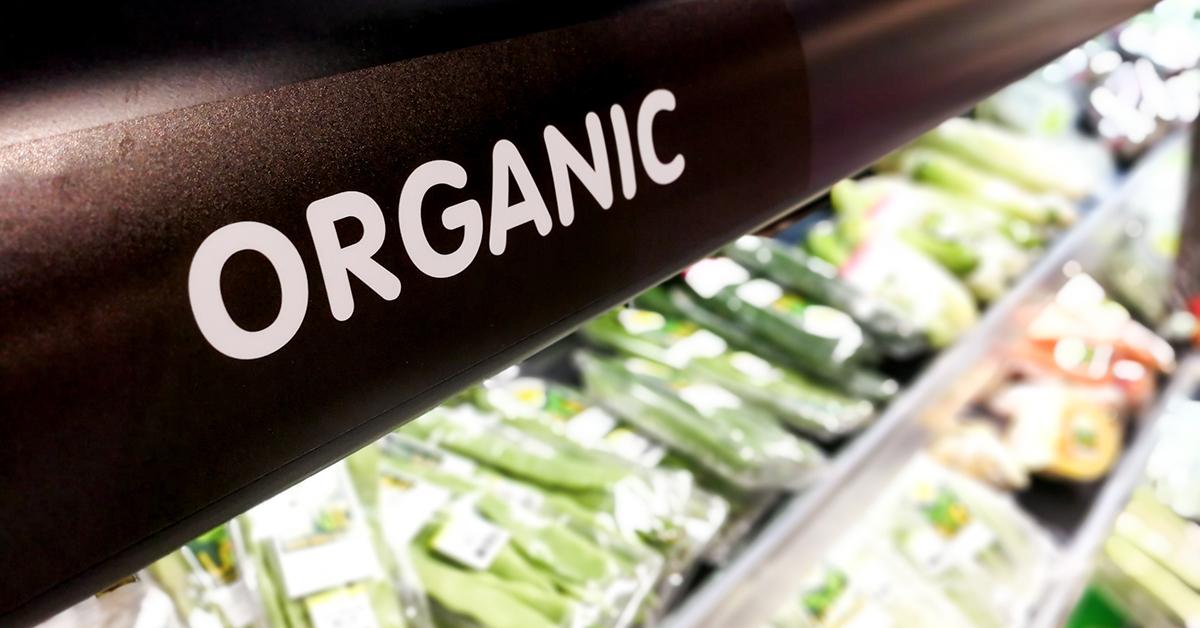Does Organic Mean All-Natural? Not Exactly — Here's the Difference Between the Labels
You’ll be happy to know that you are not the only person wondering: Does “organic” mean the same thing as “all-natural”?
Updated Sept. 23 2019, 2:34 p.m. ET

You’ll be happy to know that you are not the only person wondering: Does “organic” mean the same thing as “all-natural”? The thing is, a lot of this environmentally friendly and non-toxic lingo is being discovered as we go. The Food and Drug Administration (FDA) does not regulate the use of the term “organic” on food labels. Similarly, there isn’t much clarity on how the FDA regulates the term “all-natural” or “natural” on food labels either. Shocking, right?
According to the United States Department of Agriculture (USDA), the “natural” label constitutes a food that does not contain artificial ingredients, preservatives, and also indicates the ingredients are minimally processed. However, foods can still be labeled “natural” even if they contain antibiotics, growth hormones, GMOs, and other similar chemicals. In fact, a food containing the label “natural” can even contain high-fructose corn syrup, which adds an unnatural amount of sugar to your diet, increases risk for obesity, and is associated with the development of type 2 diabetes.
You might be thinking: Well, I Googled “all-natural,” not “natural.” There’s got to be a difference, right? Unfortunately, there isn’t; the USDA does not define food labeled “all-natural” any differently than the term “natural.” So, it’s safe to say there is no USDA-regulated difference between foods defined as “natural” and “all-natural.”
In short, the regulations for what constitutes as “natural” is lenient at best.
However, “natural” is more regulated when it comes to meats. According to the USDA, meat with the “natural” label indicates that no artificial ingredients were used and the meat endured minimal processing.

The FDA also has fairly lenient restrictions on using the term “organic” on food labels. As in, there aren’t any. While the FDA does not regulate the use of “organic” on food labels, the USDA has its own separate framework that is considered more stringent. A USDA-approved “organic” stamp on a food label means the food was made within a set of farming and production practices that are well-regulated by the USDA. These “organic” items” must be grown from soil that has to meet strict requirements. There are actual agencies dedicated to performing soil tests.
Soil must have a minimum of three years without any pesticide treatment in order for it to be certified. An “organic” label guarantees no exposure to toxic synthetic pesticides, herbicides, or chemical NPK fertilizers. It also constitutes no antibiotics and no growth hormones.
And it’s not just the soil that has to meet rigorous requirements and tests in order to qualify for “organic” certification. Organic producers and processors can, at any time, be subject to unannounced certification inspections. That means a third-party tester can show up unannounced and you better believe the producer or processor has to pass the test or they will not get that highly-sought-after “organic” label.
So, does “organic” mean “all-natural"? No, definitely not. There is very little federal regulation on the terms “natural” and “all-natural,” whereas there is so much more that goes into a food qualifying for the “organic” label. When you eat food labeled “organic,” you can rest assured that it is free of pesticides, GMOs, antibiotics, artificial growth hormones, and even exposure to sewage sludge and irradiation. “All-natural?” Well, anything can be lurking deep within that ingredient list.